Welcome to my blog,
(which is no longer in chronological order.)
It’s not all about friendship and hard times. There’s a '“Fun” category, humor being essential to joy, and my favorite to write, “Reflections.” Comment and contribute!

Was This My Mother’s Journey?
With this journey I have a beginning, I know what the “body” will be and I know better than most how it will end. The facts: I have mild cognitive impairment (MCI), the precursor to Alzheimer’s, (AD), but I want this blog to help others with this disease and to help everyone understand what is going on in my head—a person in the early stages—for as long as possible.

Alzheimer’s: the Invisible Illness
Yesterday I attended Schwartz Rounds at the University of Virginia hospital. This is a program started at Massachusetts General to give hospital caregivers (physicians, nurses, chaplains, and the like) a chance to talk about the emotionality of caring for critically ill patients. I begged admission out of curiosity. At hospitals, distressed people come and go in a revolving door mode.

What Unemployment and Caregiving Have in Common
This year, the World Alzheimer’s Report, published by Alzheimer’s Disease International (ADI) and due to be released on September 19, 2013, focuses on supporting the 15.4 million adults who serve as caregivers to a spouse, parent, or family member with Alzheimer’s disease. For the most part, we don’t see much of this group. They cannot leave at the end of the day to meet friends for a drink or dinner. They usually don’t show up at art openings, wine tastings and private parties. The accessible social life we take for granted often shuts down for the dementia caregiver.

“Keeping” Christmas
Early this past December, President Obama gave his final remarks at a White House Christmas tree lighting ceremony. He spoke about the commonality in the Christmas story message, which asks each of us, whatever views we profess, to be our brother’s and sister’s keeper. “Keeper” has come universally to mean a person willing to share the burden of another’s hardship, the term’s first Biblical use as a self-defensive plea notwithstanding. Obama asked us to reach out to people who are struggling in some significant way—the sick and impoverished, refugees trying to establish themselves in an unfamiliar country, military families separated by distance and danger. But there’s another group we need to remember in particular. Over five million have Alzheimer’s disease; 15.9 million are family caregivers. More than tangible gifts, they need time.

A Bacon Story
My Dad eats like a king. Yesterday morning, I watched as my wife served him his five-star breakfast. She served me next. "What's this?" I asked her. She didn’t exactly serve me cottage cheese and lettuce, but it was close."Talk to your doctor if you have a complaint," she told me. She treats me like a king, too, but in a different way. A way that includes less food.

Morning Coffee
I’ve said it before, and I don’t mind saying it again: My wife’s a saint.
So when she runs into the kitchen worried about my father, I have to listen, even though I’m in the middle of reading the Sports Section of our city’s fine newspaper and drinking a nice hot cup of gourmet coffee, my only indulgence.
“Your dad,” she says, breathlessly.

After Dad Moved In
Today my wife and I had planned to go shopping. It’s our usual date of the week. There was a time, pre-kids, when our date would have been something more romantic, such as a candlelight dinner or a walk along the beach—a day free of headaches. Recently one night, as my wife was climbing into bed, I pointed out two Excedrin tablets I had left on her nightstand.
"What for?" she asked me, confused.
"They're for your headache," I explained.
"Headache?" she said. "I don't have a headache." Let's just say she won't fall for that trick again. Anyway.…

Visiting a Friend in Late Stage Alzheimer’s
From Alzheimer’s: A Crash Course for Friends and Relatives: Verbal communication stops before the ability to interpret nonverbal cues. One of the first connections an infant makes is between a soothing touch or tone of voice and relief from physical distress. A smile is associated with being held, music with being rocked. People in late stage Alzheimer’s sometimes find comfort in a soft blanket or stuffed toy that brings back a sense of the security of early childhood. When words have lost meaning, nonverbal lines of communication will be left open. Remember the acronym “B-E-S-T” for ways you can continue to connect.
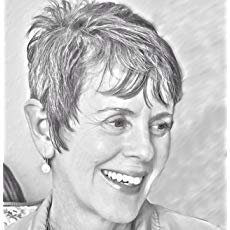

Is There Anything I Can Do?
Everyone seems to say “Let me know if there’s anything I can do” when friends are going through a hard time. The problem with the question is how hard it is to answer. Imagine a caregiver who’s trying to get through one day at a time without a calamity being confronted by this question. What could she ask for? Dinner? Companionship for an evening? Help with errands or laundry?

Sharing Supper
Having meals together is one of the main ways we connect, but caregivers can't have friends over often, if at all: it's impossible to predict what kind of day you'll have. A certain amount of planning and preparation goes into any invitation, and caregivers are usually too stressed to add additional responsibilities to the mix, even in an effort to find some relief and fun. Here are two ways you can provide both companionship and dinner:

Noticing Your Own Shooting Stars
“There’s one,” someone said.
“I see it!” someone else said.
I saw only the regular stars, which were also gorgeous but not quite as exciting.
“I can’t see any shooting stars,” I finally confessed.“Here’s how you spot a shooting star,” our friend Ron told me. “You soften and widen your gaze and stare off into the middle distance. You’re looking at everything and nothing. That way you’re open to that sudden flash of light and movement.”

How to Bond with Your Aging Parent
Your relationship with your parents is easily one of the most important in your life. As you progress into adulthood, this relationship will inevitably change and evolve as you outgrow the need for constant guidance. This can make it difficult for adult children to create (or maintain) a connection with a parent. Here are five tips to make bonding with an aging parent a positive experience for everyone.
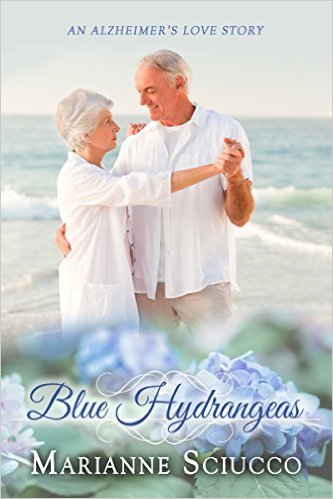
Blue Hydrangeas
From my early days as a nurse I've had a soft spot for dementia patients. Most people are unfamiliar with the day to day pain and loss this disease brings. Blue Hydrangeas, an Alzheimer's love story is my attempt to tell the heartbreaking story of dementia, and to honor the more than five million living with Alzheimer's and the people who love and care for them.
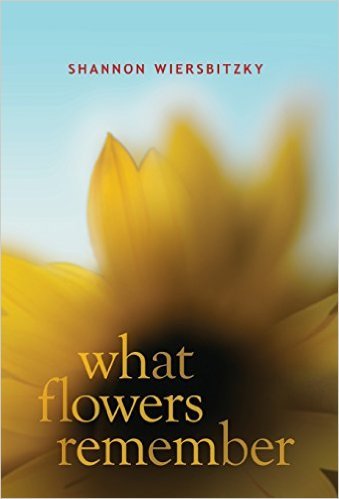
Silence Is Not Golden When It Comes to Alzheimer’s
Silence is golden. We’ve all heard that phrase. In the midst of a world that is loud and hard to understand at times, we often crave silence. Whether at home or at the beach with only the sound of the waves as company. Perhaps at a spa or in the woods, walking along a tree-lined path.

Stigma
As a young, naïve, inexperienced nurse in 1990, I accepted a job in a long-term care facility and took on the task of caring for dozens of patients with Alzheimer's and dementia. The disease was not new to me. A beloved aunt succumbed to Alzheimer's, and I experienced the pain of her forgetting me, a niece she loved, and witnessed her decline. However, that personal experience did little to prepare me for the hard work and dedication required to care for the helpless and often forgotten individuals with dementia.
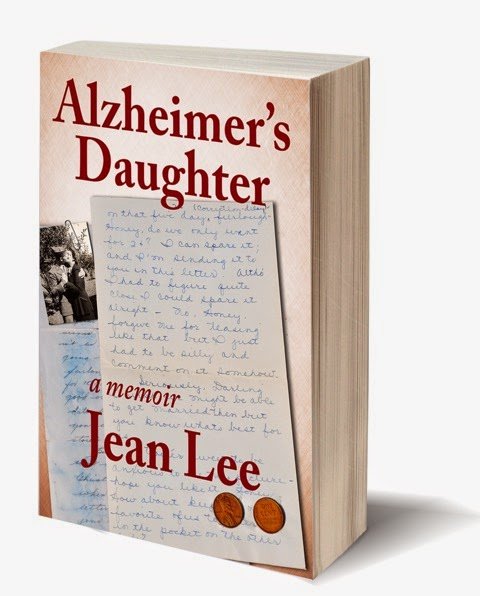
Alzheimer’s Daughter
My mom and dad were both diagnosed with Alzheimer’s on the same day. Mom declined for eight years and Dad for nine, until they died. Our journey became my memoir, Alzheimer's Daughter, the story of preserving their dignity while weighing difficult options to ensure their safety. Although my parents did not live with me, I lived one mile from them in rural Ohio and became their primary caregiver and decision-maker.
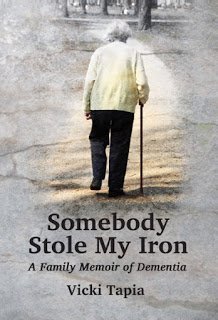
Somebody Stole My Iron
My parents, *Trudy and Harry Anderson, had lived a long and fruitful life in *Nelson City and both expected to die there. As their decline became more and more worrisome, I begged the two of them to move closer to me for their own safety, but they adamantly refused. One icy winter, a bad fall and broken hip later, they acquiesced, leaving behind a lifetime of both the tangible: house, car, and belongings; and the intangible: the love of all their remaining friends and support of their church family.

Caregiver Tips for Making Long-Term Care Decisions Amid COVID
The coronavirus crisis isn’t an ideal time to be making long-term care decisions for yourself or anyone else, but it can’t be avoided for long if you have a senior or disabled loved one whose health is declining. Here are some tips on making the best possible care decisions for your loved one, despite health and safety concerns amid COVID-19.

The Importance of Caregiver Wellbeing
If you have recently joined the ranks of those who act as a primary caregiver for a loved one, such as a senior parent with Alzheimer’s or some other condition requiring care, you are not alone. Due to astronomical senior housing costs and increased longevity, families are increasingly taking on the caregiving role. And this trend is only poised to continue with senior populations expected to increase to 71 million by 2030.